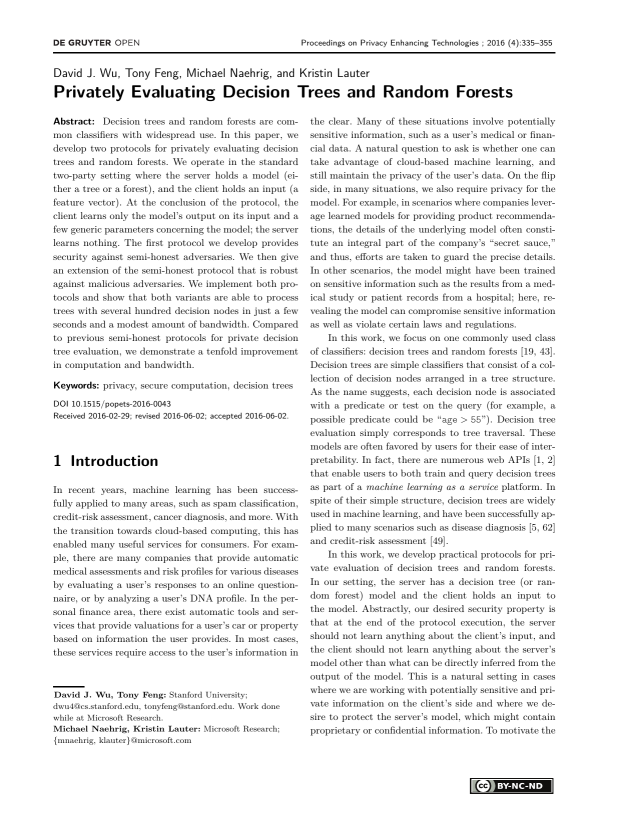Privately Evaluating Decision Trees and Random Forests
Authors: David J. Wu (Stanford University), Tony Feng (Stanford University), Michael Naehrig (Microsoft Research; {mnaehrig), Kristin Lauter (Microsoft Research; {mnaehrig)
Volume: 2016
Issue: 4
Pages: 335–355
DOI: https://doi.org/10.1515/popets-2016-0043
Abstract: Decision trees and random forests are common classifiers with widespread use. In this paper, we develop two protocols for privately evaluating decision trees and random forests. We operate in the standard two-party setting where the server holds a model (either a tree or a forest), and the client holds an input (a feature vector). At the conclusion of the protocol, the client learns only the model’s output on its input and a few generic parameters concerning the model; the server learns nothing. The first protocol we develop provides security against semi-honest adversaries. We then give an extension of the semi-honest protocol that is robust against malicious adversaries. We implement both protocols and show that both variants are able to process trees with several hundred decision nodes in just a few seconds and a modest amount of bandwidth. Compared to previous semi-honest protocols for private decision tree evaluation, we demonstrate a tenfold improvement in computation and bandwidth.
Keywords: privacy, secure computation, decision trees
Copyright in PoPETs articles are held by their authors. This article is published under a Creative Commons Attribution-NonCommercial-NoDerivs 3.0 license.

